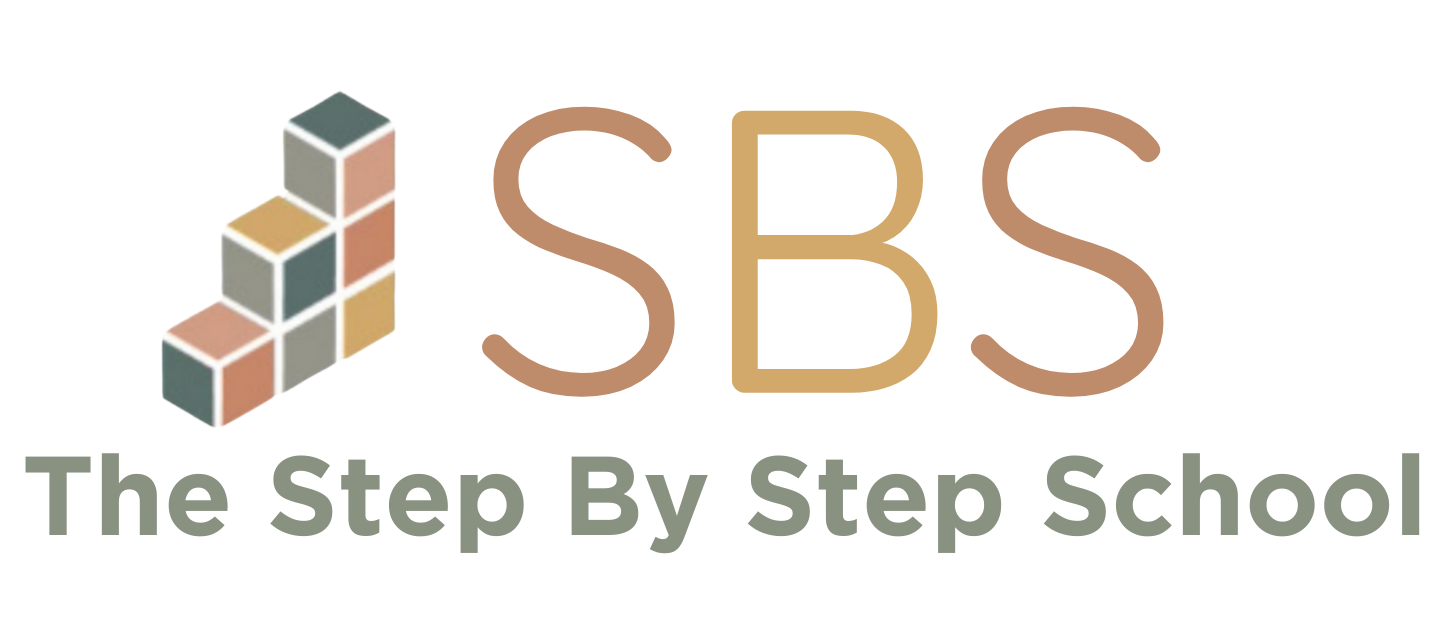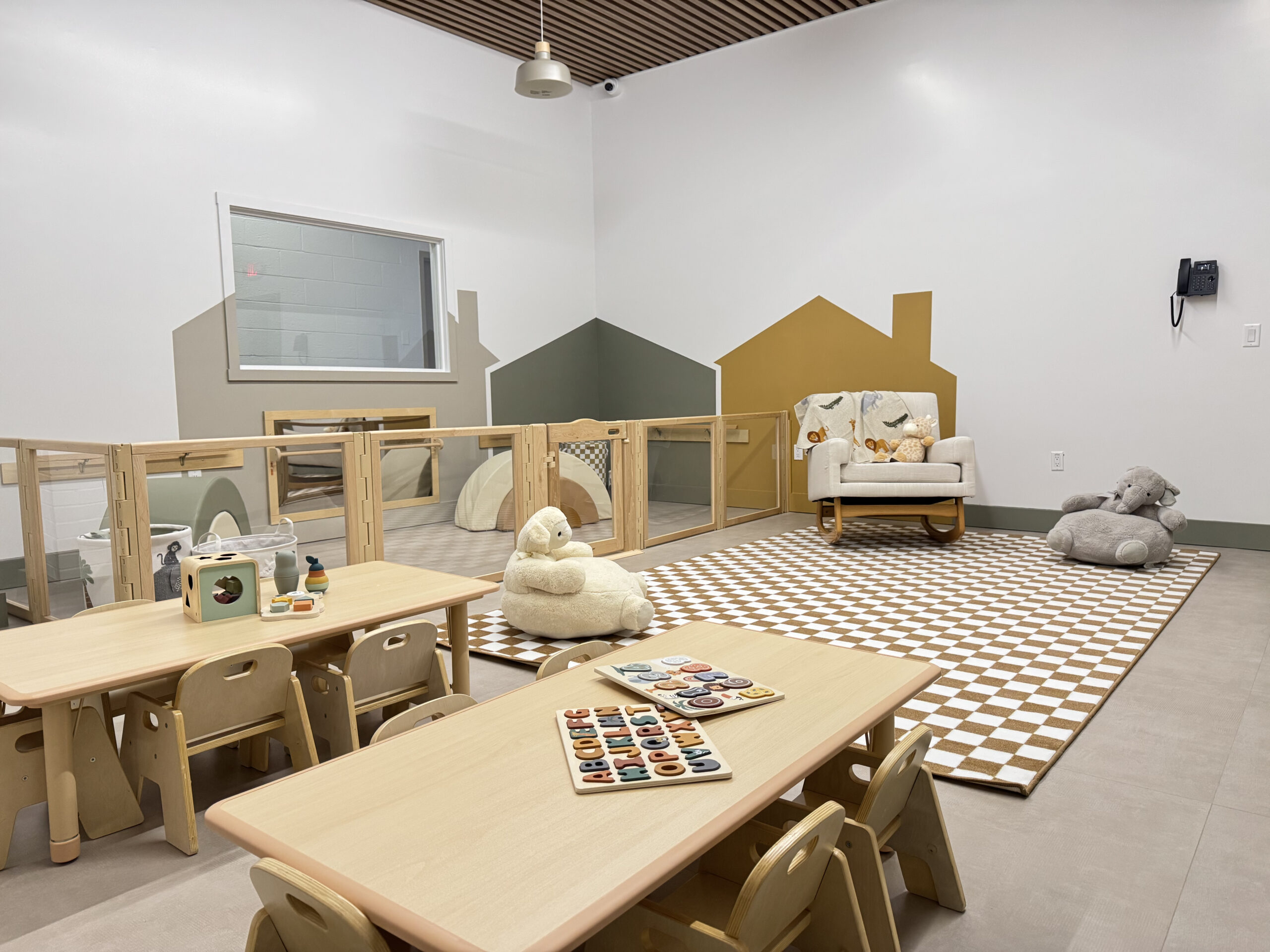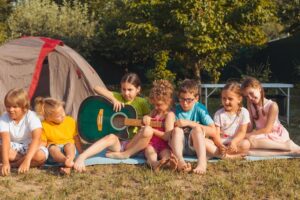When we think of preschool, we often picture children laughing, running, painting, building — in short, playing. But did you know that all that play isn’t just fun and games? It’s actually a key part of how young children grow, learn, and thrive.
At The Step by Step School, we believe in the power of purposeful play. It’s not a break from learning — it is learning. Whether you’re in Hudson, Monroe, or beyond, understanding the value of play in early childhood education can help you make confident choices for your child.
This post will walk you through how play builds essential skills, what types of play matter most, and why the best preschool classrooms look like joyful, creative workshops of learning.
Why Play Is Essential in Preschool
Play is how young children make sense of the world around them. When they stack blocks, play dress-up, or dig in the sandbox, they are experimenting, solving problems, and building relationships.
The National Association for the Education of Young Children (NAEYC) emphasizes that play-based learning in preschool supports cognitive, social, physical, and emotional development. This is why leading preschools across Hudson and Monroe prioritize play in their daily curriculum.
In simple terms: play isn’t a distraction — it’s a tool. It fosters imagination, language skills, emotional control, and even math and science awareness. Every joyful moment is a chance to grow.
The Preschool Classroom: A Place for Purposeful Play
Step into a quality preschool, and you’ll see more than just toys and games. You’ll see well-thought-out learning centers designed for active, engaged exploration. These spaces are intentionally arranged to support both guided learning and free choice.
In our own Hudson and Monroe classrooms, play is part of every subject:
-
Math skills develop through counting games and puzzles.
-
Literacy blooms with storytelling and puppet shows.
-
Science concepts grow with water play and nature exploration.
-
Social skills are built during pretend play and group activities.
Teachers guide this play, not by taking over, but by stepping in at the right moments to ask questions, offer challenges, or just observe and celebrate growth.
H2: The Role of Play in Preschool Learning
The preschool years are all about milestones — and play is often what drives those leaps forward. Let’s break down the key developmental areas that benefit most from playful learning:
1. Cognitive Development
Play supports thinking, memory, and decision-making. Building with blocks teaches planning and spatial reasoning. Matching games boost memory. Pretend play allows kids to explore different roles and test ideas.
2. Language Skills
Whether it’s talking through a tea party or telling stories with action figures, children build vocabulary, sentence structure, and communication skills through playful conversation.
3. Social-Emotional Growth
Taking turns, resolving conflicts, and expressing feelings all happen naturally through group play. This prepares children for later success in school and life.
4. Fine and Gross Motor Skills
From stringing beads to jumping in puddles, both big and small muscles are exercised through play, improving coordination and physical health.
In Monroe and Hudson, many families report that their children become more independent, confident, and expressive after joining a play-based preschool environment.
Types of Play That Support Preschool Learning
Not all play looks the same — and each type brings unique benefits. Here are the kinds of play to look for in a high-quality preschool:
-
Free Play: Child-led, open-ended activities that encourage creativity and independence.
-
Structured Play: Teacher-guided games and tasks with clear objectives.
-
Dramatic Play: Pretend play that builds empathy and communication.
-
Constructive Play: Using materials to build or create — think blocks, clay, or art supplies.
-
Physical Play: Running, dancing, climbing — essential for health and development.
A well-rounded preschool will include all these types of play in the daily schedule, along with time for rest, music, and outdoor exploration.
Choosing the Right Preschool: Look for Play
When touring programs in Hudson or Monroe, ask about their approach to play. A great preschool should be proud to show off play areas and explain how fun activities tie into real learning.
Good questions to ask include:
-
How much of the day is devoted to free choice and play?
-
How do teachers guide and extend learning during play?
-
What materials are available for imaginative or creative play?
-
Do children get time to play outside daily?
The answers will give you insight into how the school views children’s learning — and whether it aligns with what you want for your child.
👉 Read more on the science behind play
Play Prepares Kids for Kindergarten — and Life
It’s easy to get caught up in the pressure to prepare children academically. But the truth is, the most valuable skills at the preschool level are often “soft skills” — collaboration, problem-solving, empathy, and curiosity.
Kids who play learn how to navigate challenges, express themselves, and build meaningful connections. These are the skills that make confident learners and compassionate friends.
So if your child’s preschool day sounds like fun, that’s a good thing. In fact, it’s the best sign of a thriving learning environment.
Conclusion: Let the Learning Begin Through Play
Play is more than fun — it’s the engine behind your child’s early development. A preschool that values play offers not only joyful memories but lasting skills that help children grow into their best selves.
At The Step by Step School, we embrace learning through play every single day. Whether you’re based in Hudson, Monroe, or nearby areas, we welcome you to come see how our playful, purposeful approach sets us apart.
🎨 Ready to see the power of play in action?
Schedule a tour or reach out to our team to learn how your child can start their journey with confidence, joy, and creativity.
FAQs About Play in Preschool
1. Why is play important in preschool education?
Play supports emotional, social, and academic growth. Through fun, hands-on activities, children in preschool develop foundational life skills.
2. How much time should preschoolers spend playing each day?
Experts recommend that most of the day in preschool should be play-based. This includes both free play and structured activities that feel like play.
3. What are signs of a good play-based preschool?
Look for active, happy children; a variety of toys and learning centers; and teachers who interact warmly. Schools in Hudson and Monroe often showcase these traits.
4. Can play really prepare children for kindergarten?
Yes! Through play, kids learn problem-solving, cooperation, and early math and literacy concepts. These are all key parts of a strong preschool foundation.
5. What if my child prefers to play alone at preschool?
That’s normal. Some children are observers or enjoy solo play. A nurturing preschool environment supports all play styles and gently encourages social growth.









